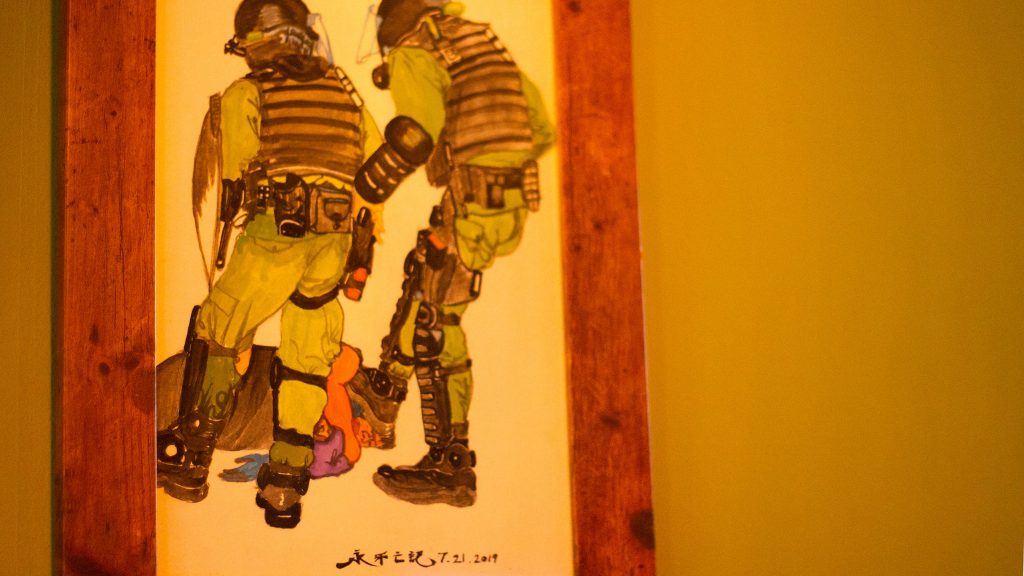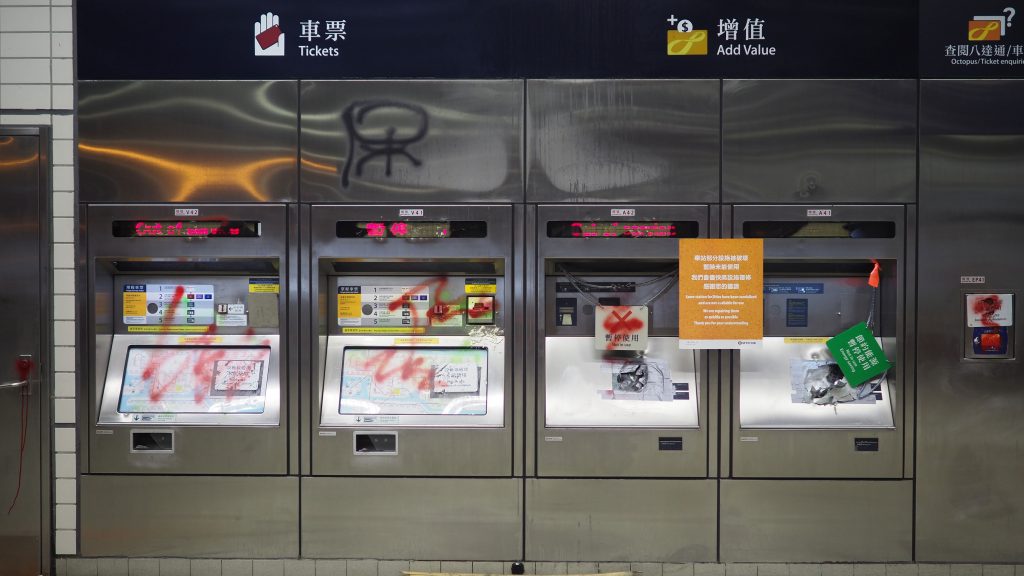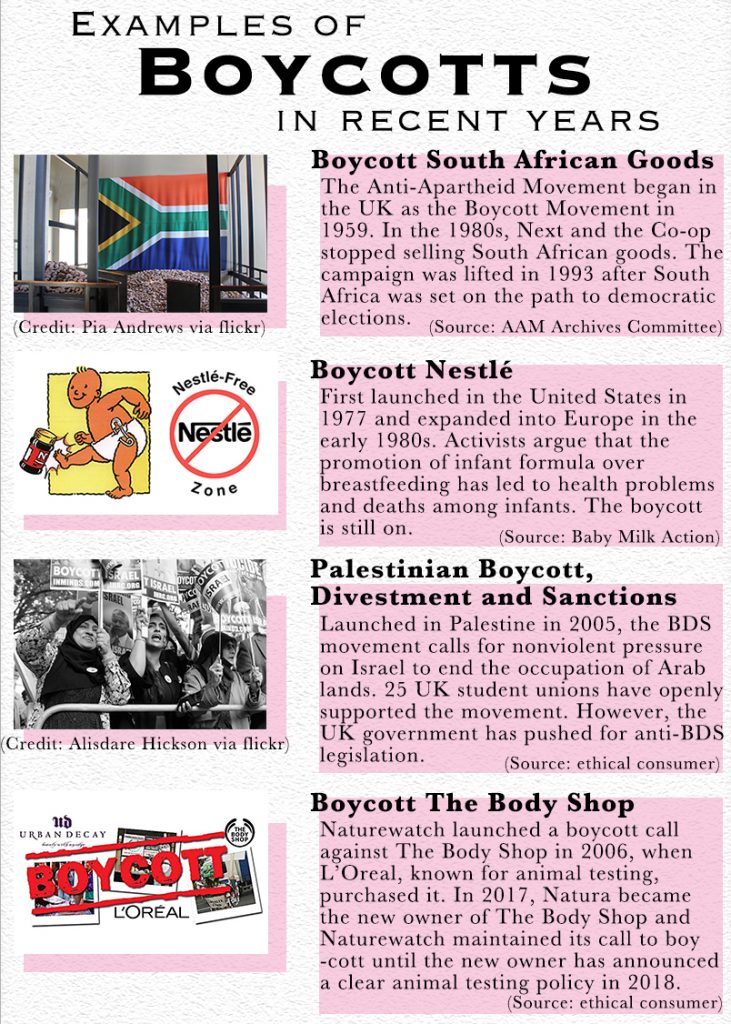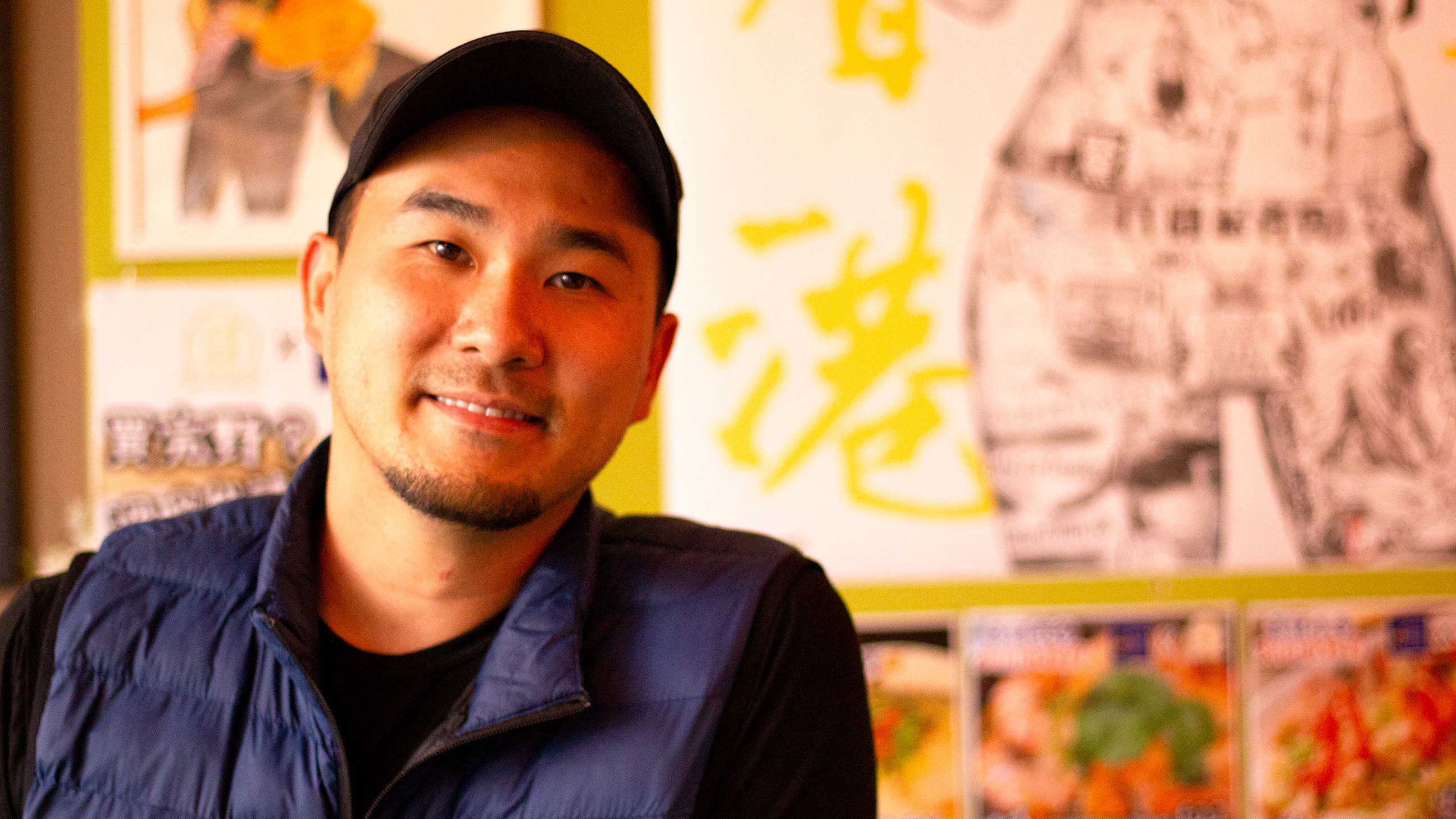Hong Kong immigrants are calling to support pro-democracy businesses in the UK, why is it important to the diaspora community?

A policeman stepping a protester who is lying on the ground and with no chance to resist. It is a scene of the Hong Kong protest in 2019, and it is also a painting in Johnny’s restaurant in the town of Loughborough, England.
The restaurant is a member of the yellow economic circle, a concept that was developed in Hong Kong three years ago, and shops that openly support the pro-democracy movement.
Johnny’s restaurant is a display of his pro-democracy stance as décors fill the walls, something he wouldn’t have done if he were still in Hong Kong.
“I think I should speak out for Hongkongers when I have the right,” says Johnny. “This is a mission.”
Many of the customers in the café are recent arrivals to the UK, people who apply for a new visa granted by the UK government. The new visa scheme was announced after the Chinese Communist Party imposed a new law to target dissents in Hong Kong.
Finding another restaurant that serves authentic Hong Kong food as he does, according to Johnny, is not easy, but he’s not just here to satisfy his customers’ stomachs.
“We hope Hongkongers can have a place to gather and keep speaking out,” says Johnny. He hopes like-minded people will not forget the democracy movement after leaving Hong Kong.

The idea of the yellow economic circle first emerged as protesters’ initiative to bring the pro-democracy movement into people’s daily life aiming to create economic impact.
Demonstrators started to categorise businesses as yellow, pro-democracy, or blue, in support of the Chinese government or having any Chinese connection.
Maps and apps showing businesses’ perceived leanings help inform customers where their money goes.
The habit was brought to the UK as a Google map has been set up to label yellow and blue shops across the UK last year.
“Basically, it is to support your comrades and it’s part of the movement,” says Terry from Justitia Hong Kong, the organisation that manages the map.
Yet, as the idea of the yellow economic circle reaches a new soil, yellow shops can do more to boost the pro-democracy movement.
“Most of the customers will not be Hongkongers, they need local customers to sustain the business,” says Terry.
“When locals shop there, they will understand the values of the owners. In the long term, it serves as a promoting purpose in the movement.”
Johnny says his staff will cherish the chance to talk to local customers about what has happened to Hong Kong.
“They don’t know what Hong Kong food is like. When they see our food, they think it’s interesting and come to challenge themselves,” says Johnny who observes that a lot of locals haven’t tasted authentic Hong Kong dishes.
Next to the beer tap sees a helmet which was commonly used by protesters to protect themselves against the police.
“When they visit the restaurant, they will see the posters and ask questions,” says Johnny. “Our staff will talk to them and tell them what has happened in Hong Kong.”

Since the initial idea of the yellow economic cycle appears, some people have developed a habit of not just spending on yellow shops, but also refusing their blue counterparts.
However, whether to boycott and what to boycott become constant debates in both Hong Kong and the UK.
Some shops are labelled as blue because of the owners or staff’s Chinese background.
Johnny says he doesn’t boycott shops because they’re run by Chinese owners in the UK as they may support the pro-democracy movement but are not dare to openly speak out.
Johnny says a lot of old Chinese overseas assisted him to start the restaurant. “Actually they share the same viewpoints with us, but they’re convenient to support us openly,” says Johnny.
The Chinese government has targeted family and friends of activists aboard to keep them silent.
The Hong Kong-China conflict is vivid in the UK as Terry was triggered to set up the map to label blue shops after a confrontation between the Chinese and Hong Kong communities.
There was a rally to commemorate a special day of protest in Hong Kong, the president of Manchester China Town Business Association said on social media that the demonstrators were NEETs.
Shops that had relationships with the Business Association have then been labelled as blue on the map.

Anyone who wants to report a yellow or blue shop to the map can submit the shop’s information with justification to Justitia Hong Kong via a Google Form.
Terry says they trust the people who report and don’t fact-check the information reported and didn’t plan to do so. ” In the beginning, we didn’t want to be an authority to say who is yellow and who is blue.”
According to the map, there is a shop that is labelled as blue with a short sentence saying the owner supports the Chinese government. On the other hand, there are other shops with more detailed descriptions.
Terry says there may be a need to send people to fact-check the information. But the organisation doesn’t have the people and resources to do it at the moment.
The limited resources also restrict the number of shops that are shown on the map. After a year of running the map, Terry thinks the map is doing so-so.
“We have somehow ignored the map as I think it’s not that urgent,” says Terry. He thinks it’s more important for the organisation to focus on helping Hongkongers to settle down.
Terry doesn’t have a plan yet to expand the map and is not sure about the development of the yellow economic circle in the coming years.
Besides the map, a magazine introducing businesses owned by Hongkongers have founded, claiming to be the first of its kind.
Even back in Hong Kong, it is never easy to affect the economic system, which is dominated by large corporations, which have openly supported the government’s suppression of demonstrators.
Maxim, for example, is one of the biggest corporations in Hong Kong and has been deemed a blue shop. It covers everything from groceries to eateries and also runs the branch of Starbucks in the city.
As tempers flared during the 2019 Protest, Maxim’s Starbucks were a frequent target of vandalism. Nonetheless, Maxim is still running its business as usual and continues to be one of the most influential corporations in Hong Kong today.

The impact of the yellow economic circle might not be significant on the overall economy, Kenneth Chan, a political scientist at the Baptist University of Hong Kong, told the Guardian.
Nevertheless, the conscience-driven consumption, he said, could breed a sense of self-determination and solidarity against the government.
Throughout the three years, the idea of the yellow economic circle has somehow absorbed the call to boycott Chinese products due to the use of forced labour. The call aims to reduce Chinese influence on the international economy.
Since 2016, the Chinese government has imprisoned a million or more ethnic Uyghurs and Turkic in camps. Some of them have worked as forced labour.
Avoiding from products that have a “made in China” label, according to Johnny, is impossible. “To be honest, any ordinary people know it’s impossible.”
From furniture to clothes, to Covid test kits, China is the world’s manufacturing superpower. For Johnny’s restaurant, it may be even harder to avoid using Chinese products as Hong Kong dishes have a level of proximity to the Chinese.
“So what do we do? We will try to use substitutes,” says Johnny.
Sizzling Chicken Pot, one of the dishes that his restaurant serves, requires Shaoxing Wine, a Chinese wine, as an ingredient. “Then we end up with a fusion style, we use whisky,” said Johnny.
To expand the yellow economic circle in the UK, Johnny is trying to help others to grow their businesses as well. He has recently opened the corner on the first floor of his restaurant as a small grocery store for other Hong Kong start-up businesses to sell their products for free.
Johnny says he is willing to provide spaces for like-minded people who dare to speak out openly to grow their businesses.
Back in Hong Kong, yellow shops have become restrained to speak out since a new law targeting dissidents was imposed in 2020.
Markets and events featuring yellow shops are getting smaller and less frequent.
As uncertain as the future of their home city, the yellow economic circle in the UK does not have a clear blueprint.
Johnny says the yellow economic circle is not doing well, but it’s understandable as the wave of immigration has just happened for two years.
“When people arrive in the UK, they have to buy houses, buy cars, a lot of things to do to settle down, not a lot of people will start so fast,” says Johnny.
Johnny says he will continue to spread the story of Hong Kong. He wishes that one day some Chinese shops will join the force to support the pro-democracy movement in Hong Kong.

